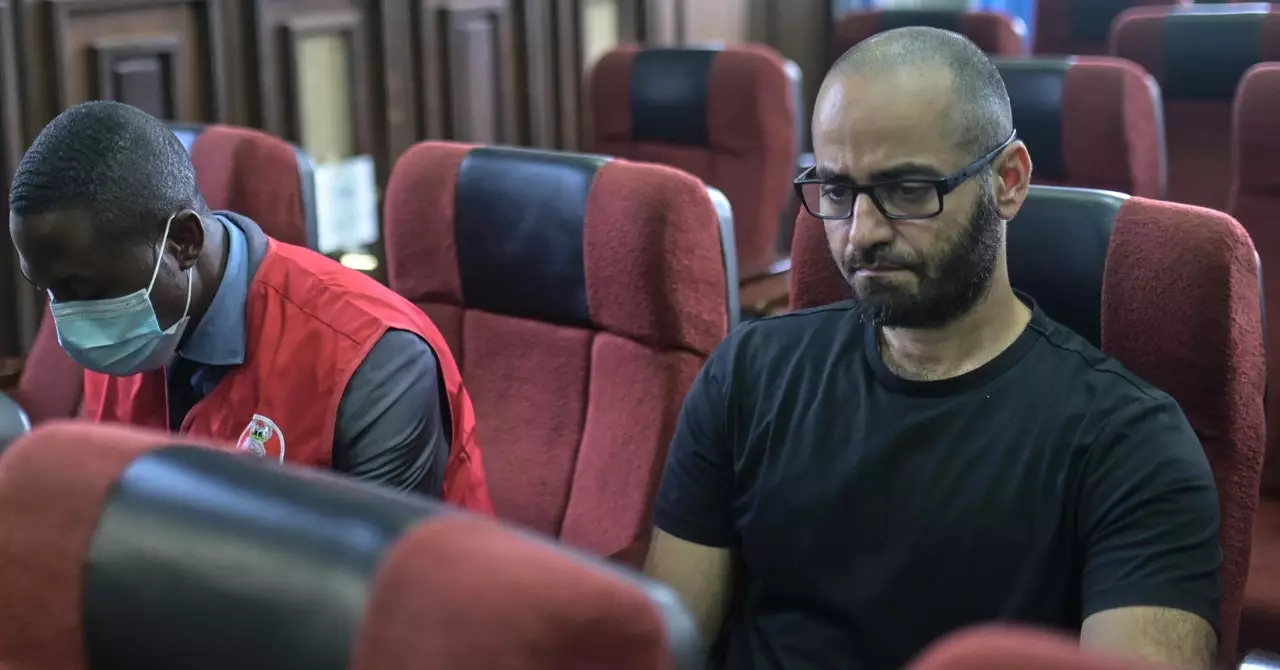In a narrative that blurs the lines between justice and travesty, the story of Gambaryan, a prominent figure in cryptocurrency tracing, reveals the darker complexities of international law enforcement and diplomatic relations. Initially hailed for his role at Binance and a decade of service as an IRS criminal investigator, Gambaryan’s journey took a drastic turn when he found himself embroiled in legal turmoil in Nigeria. A country grappling with significant economic challenges and allegations of financial impropriety involving cryptocurrency exchanges, Nigeria invited Gambaryan for discussions on money laundering—a decision that ultimately led to his arrest and imprisonment.
In light of this peculiar context, it is striking that the very legal processes meant to uphold justice may sometimes devolve into instruments of political machinery, as evidenced by Gambaryan’s case. Initially detained in February, he faced unsettling charges of money laundering and tax evasion. These accusations, however, seem to originate more from Nigeria’s ongoing struggle with cryptocurrency regulation and financial stability than from any direct misconduct on his part. His arrest unveils a sobering perspective on how high-profile figures can become pawns amid nationalistic and economic strife.
Compounding the untenable nature of his situation, Gambaryan’s deteriorating health within Nigeria’s Kuje prison has further intensified scrutiny on the nation’s treatment of foreigners caught in its judicial net. Suffering from a herniated disc that requires urgent medical attention, his condition escalated to the point where he was seen in court in a wheelchair just months after his imprisonment. Visual documentation of his medical struggles starkly contrasts the image of a once-capable investigator now reduced to a pleading inmate.
This concerning aspect brings to light the ethical implications of detaining someone under such circumstances. The abrasive nature of Gambaryan’s treatment has sparked international outrage. The U.S. government’s increasing pressure on Nigerian officials indicates that such diplomatic entanglements often result in a form of collective accountability, where health and humanitarian considerations clash with national interests.
The situation surrounding Gambaryan has escalated beyond the individual level and entered the realm of political theater, where both sides must navigate a complex landscape of expectations, legalities, and public opinion. The involvement of multiple stakeholders, including U.S. Congress members, indicates a burgeoning crisis that could unravel underlying tensions between the United States and Nigeria. The passage of a resolution in the House foreign affairs committee calling for action signifies the increasing urgency felt by U.S. lawmakers, who are beginning to characterize Gambaryan’s detainment as a potential hostage situation.
Such politicization of Gambaryan’s plight raises broader questions about the motivations behind international diplomatic interventions. Are foreign governments merely reacting to public outcry, or do they possess deeper, strategic interests in resolving these international incidents quickly? This is particularly pertinent in cases that straddle the realms of finance, law enforcement, and national identity—each reinforcing the other in a cyclical relationship of influence and control.
Gambaryan’s recent court ruling to drop charges against him on medical grounds offers a glimmer of hope for his eventual return home. However, the fact remains that he continues to be incarcerated, raising alarm bells about the judicial system’s integrity. The aftershocks of this case will reverberate beyond his situation as governmental agencies, both domestic and international, reassess their approaches to law enforcement concerning cryptocurrencies, especially given their newfound status as tools for global financial management—and mismanagement.
As we await confirmation of his departure from Nigeria, there remains a palpable sense of urgency mingled with skepticism. Will Gambaryan’s release mark the end of a protracted ordeal, or will it serve as a precursor to more intricate discussions surrounding economic sovereignty and legal accountability in the arena of digital currencies? Only time will tell if justice indeed prevails in this convoluted saga, or if the legacies of political tension and suffering linger on.

